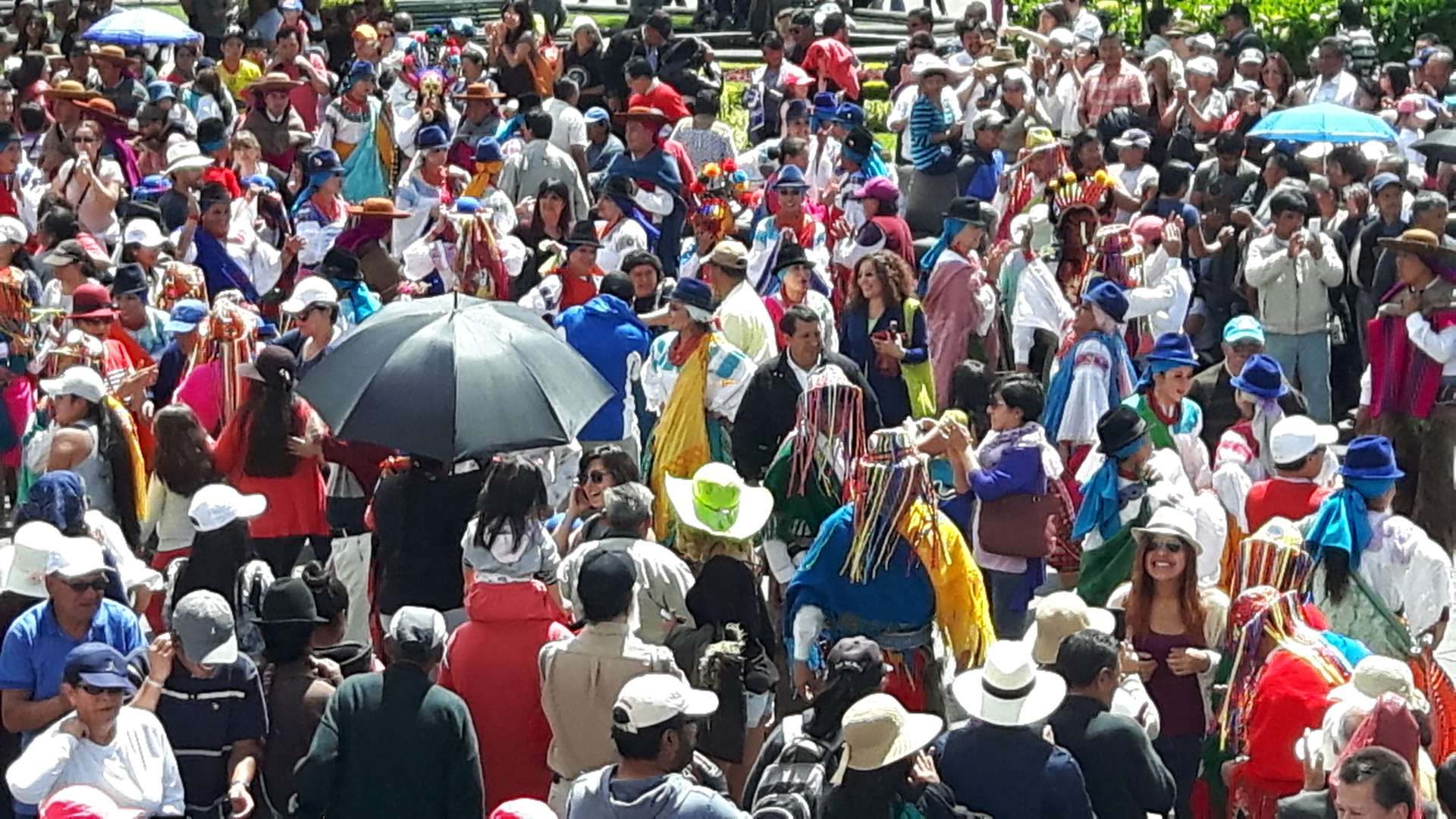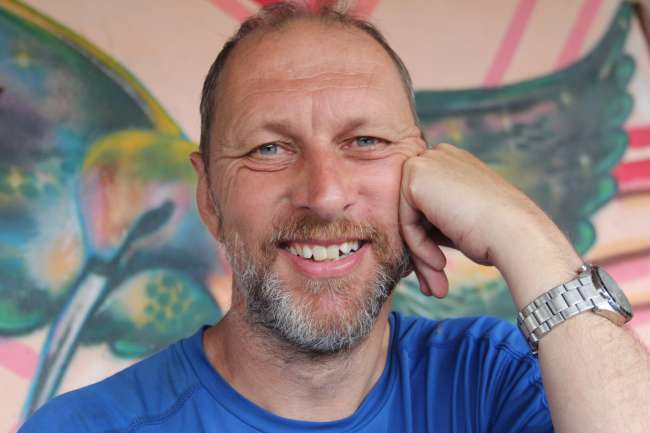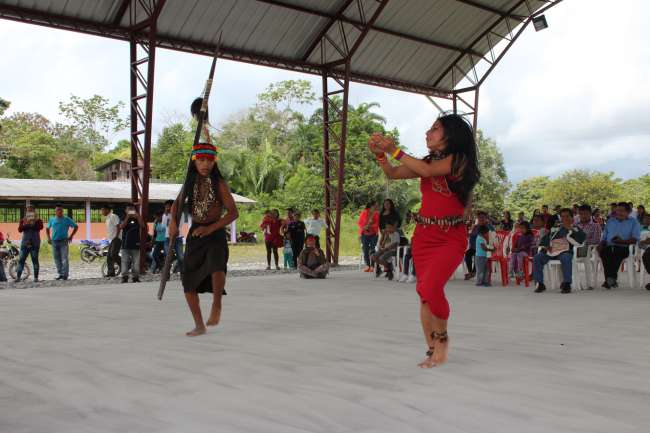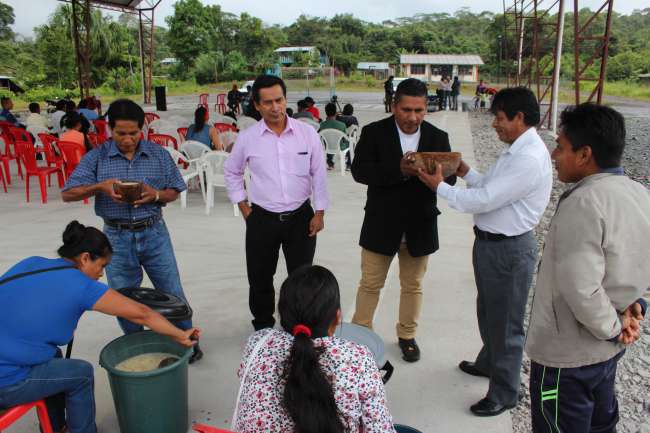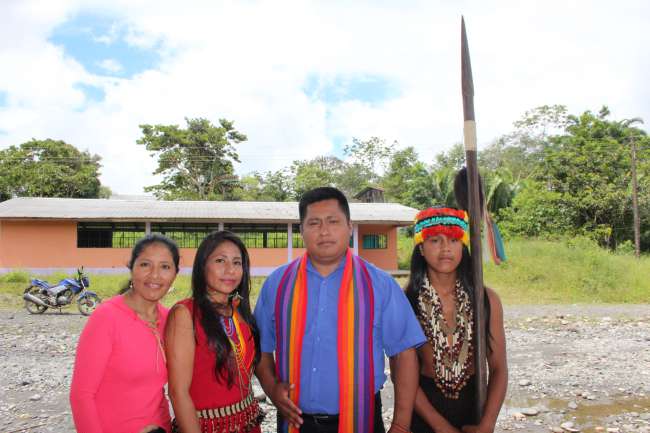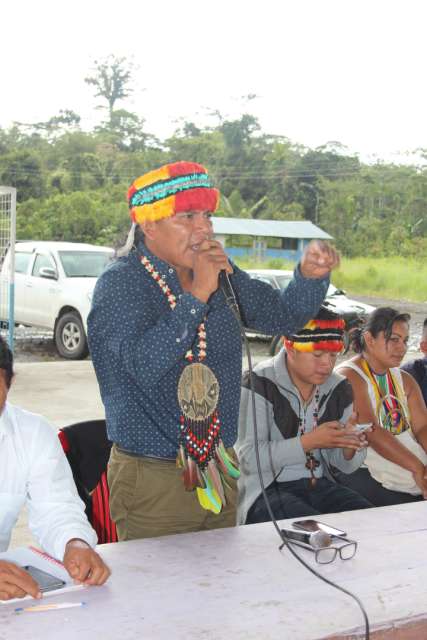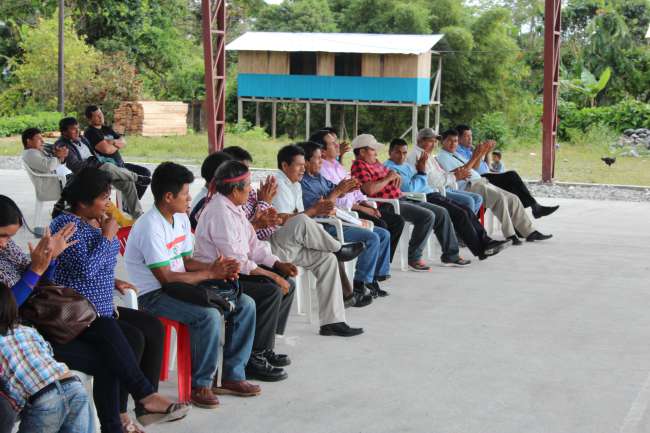Shuar - Meeting
Publisert: 04.06.2017
Abonner på nyhetsbrev
June 3, 2017
The assembly of all Shuar communities in the Palora region begins today at ten o'clock. Tzama is their president and is responsible for organizing the meeting. That means that the two large speakers and all the technical equipment he has in his studio at home must be loaded onto the silver Toyota. He, his son Nasem, and Jasmin sit in the front, I am a bystander, and Valeria and little Camillo sit in the back, despite the threatening rain clouds.
At the first stop in the parish of 16 de agosto, two cables are unloaded, one of which has to be untangled, and Zama organizes a second transporter for the rest of the family and the villagers.
It starts to rain heavily and I open my umbrella, as long as we are not driving.
When he starts driving, the rain also subsides a bit. After five hundred meters, the car stops and three gentlemen in clean pants and shirts get on the pickup truck. We head out to the pampas, or selva. In the direction we took for the visit to the arcades. At least ten kilometers further and passing some Shuar settlements, we reach the large covered concrete soccer field, not even very wet. That's where the meeting will take place.
However, the event doesn't start until. Although the infrastructure would have been ready at ten, only ten representatives from the individual communities were present. So another long fifteen minutes was waited. If I imagine something like that with us? Simply impossible!
In the meantime, there was a lot of talk and chicha drinking. That's the traditional drink of the Shuar. Made from yucca and originally mixed with saliva to start fermentation, that is, converting starch into alcohol. The quantities that were delivered here by the Shuar women were certainly not brought with saliva for fermentation. Nevertheless, for someone who cares a lot about hygiene, it is a torture to drink that stuff. I have no problem with it, although I will never be a chicha enthusiast. Here among the Shuar, it is also a social event, drinking chicha.
In the meeting, reports are given about the activities of the communities. One community leader catches my attention as he clearly advocates not waiting for politics. They don't do anything anyway. They themselves have to take action. How similar the whole world is in this regard, right?
Tzama comments as the president and adds that even though politicians promised him high and mighty before the election that this and that would be set in motion after his election and nothing happened, they still have to demand their rights again and again. Because the Indigenous people have rights, as they are the true owners of the land and because corresponding rights are stipulated in the Ecuadorian constitution.
It is sometimes interesting to see and hear how fiery it gets here. Even when most of the Shuar speak, you can feel the passion in their speeches.
The detailed speeches are then lightened up before noon by a traditional dance performed by Nankim and Maria, Nanki's wife. It is eagerly filmed with cell phones. Then the president of the Shuar Association and his wife are asked to dance, and filming becomes even more intense. After that, the speeches continue.
At one o'clock, a taxi arrives equipped with food for ... I have no idea for how many. In any case, too few. Although the last cup of food is handed to me, I pass it on to Jorge. I bought a roll of "galletas" this morning and can eat from those. But it's stupid if Jorge and his family go hungry.
I have no clue how long the whole event will last, but after hours of listening without understanding, I am gradually losing interest.
Two speeches are still interesting, one of them by the president of the Shuar Association. As far as I understood him, he wants to run for a higher office in the state. There he would advocate for the well-being of his people. I'm not quite sure I heard correctly, but I still wondered what would happen when that time comes. Isn't it true that everyone who finds themselves in a higher position first thinks of themselves? I have never experienced anything different. I would say 98%. It reminds me of the ballad of National Councillor Hugo Sanders, and that's still harmless.
And what about the people who live here? What if they know the better, easier life? Just think about doing laundry. What if the neighbor has a washing machine? Aren't there also people here who would prefer a different life than living in the selva? Working and earning money instead of gathering food in the selva every day. Studying and being a lawyer somewhere in Riobamba or Quito, with a little house, instead of hitting the roof with a machete and bamboo sticks.
I realize that the people here have a very difficult task.
Abonner på nyhetsbrev
Svar
